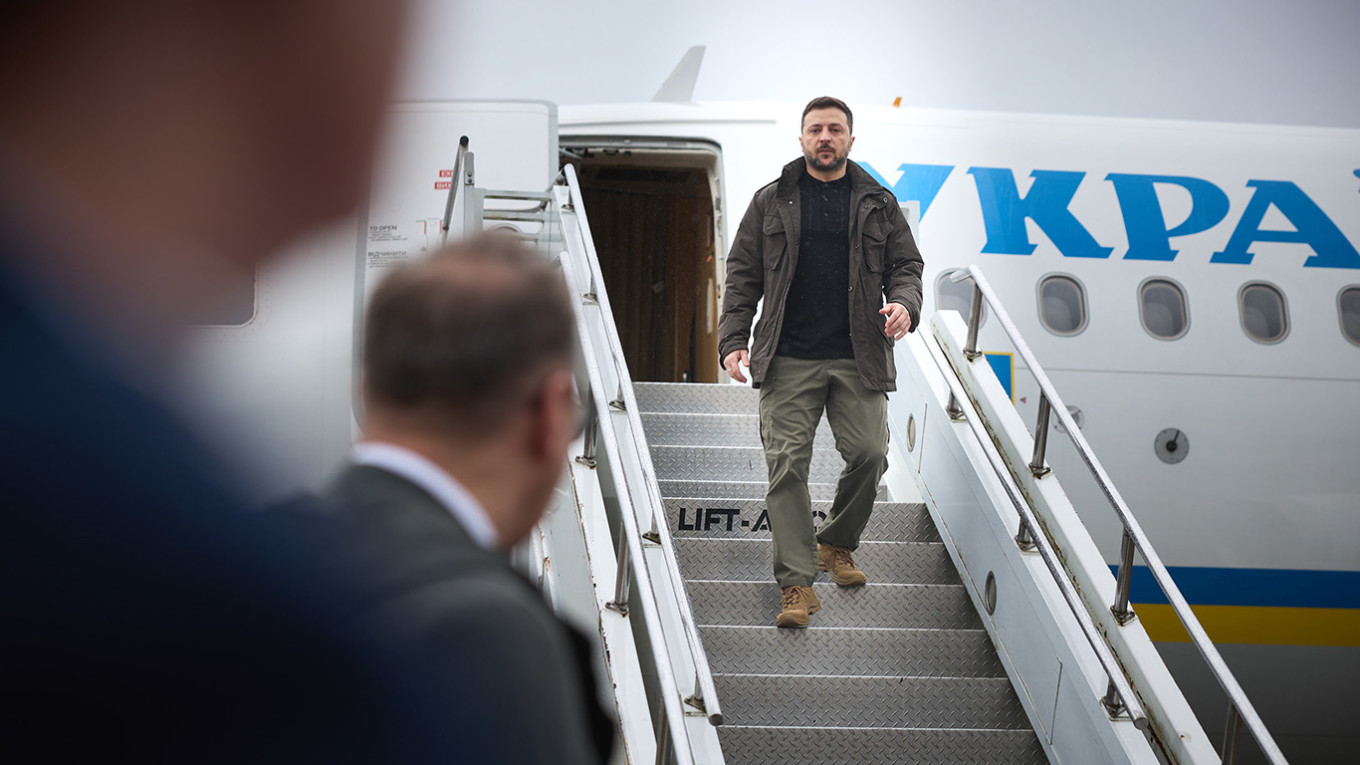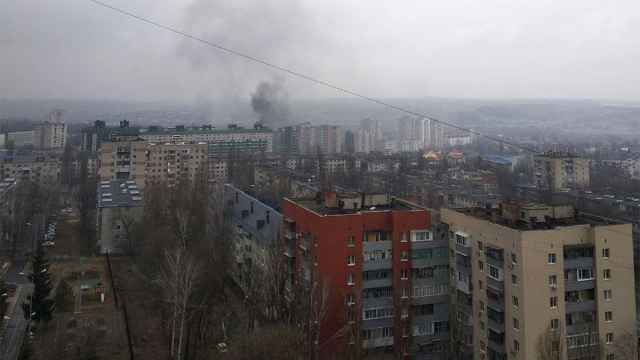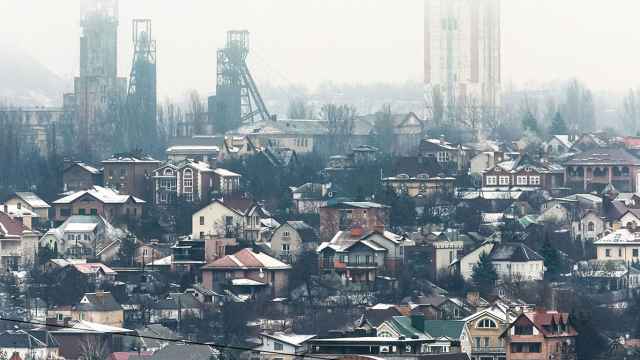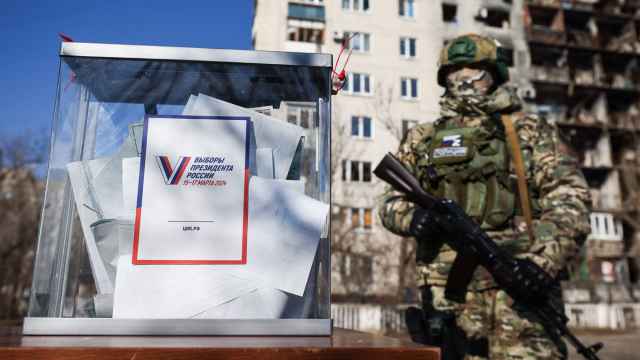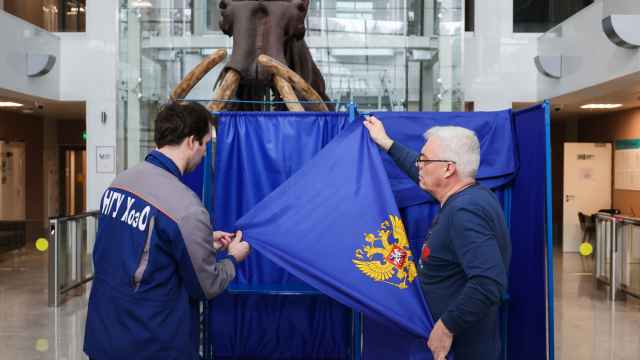For over a decade, Ukraine has stood as the barrier to Russia’s bid to reclaim dominance in Europe. Now, on the third anniversary of the full-scale invasion — despite grand proclamations of Western support and aid carefully measured to fall short of what would allow Ukraine to make gains — it finds itself further from victory than ever. Kyiv has been made an unwilling contestant in the Olympics of absurdity, where yesterday’s madness is today’s routine.
Interestingly enough, the U.S. is now vying for the top prize, turning the debate into a spectacle where the question is no longer how to stop the aggressor, but who the aggressor even is. For the first time, the U.S. is pushing back the consensus about who is responsible for the war — refusing to label Moscow the aggressor in a G7 statement and declining to co-sponsor a UN resolution condemning Russia.
We are told Ukraine never had a chance to win and should be “realistic” about its future. But today’s realities are the direct result of past decisions that were ill-informed, halfhearted, or driven by short-term interests. At the recent Munich Security Conference, Vice President J.D. Vance’s speech echoed President Vladimir Putin’s 2007 appearance but from the other side of the ocean. The deafening crack this caused in transatlantic cooperation was impossible to ignore.
The illusion that sacrificing Ukraine will somehow decouple Russia and China persists. But make no mistake: Russia’s ambitions do not end at Ukraine’s borders. Russia remembers when its sphere of influence stretched deep into Europe, up to Berlin. It is already testing its reach — through energy blackmail, disinformation, political subversion and hybrid warfare against the European project.
Today, the disunity of the collective West is eroding all hopes for sustainable peace. As Winston Churchill once warned Neville Chamberlain: “You were given the choice between war and dishonor. You chose dishonor, and you will have war.” Yet NATO’s clearest message remains to be that it will do everything to avoid direct confrontation with Russia.
Moreover, there are now whispers about another reset with Russia: the lifting of sanctions, the return of Moscow to international institutions and the convenient forgetting of war crimes. Russia and the U.S. are also weighing Arctic energy cooperation as the Trump administration eyes a deal for access to Russian resources.
Meanwhile, the U.S., once the guardian of the rules-based global order, has turned into a merchant trying to take half of the valuable belongings from a wounded soldier. The offered $500 billion deal on the country's rare earth minerals is an offer to sell Ukraine not secure it.
U.S. officials claim they have sent $350 billion in aid to Ukraine. But the actual numbers tell a different story. Over three years of war, Ukraine has received only about $120 billion in military, humanitarian and financial assistance from the U.S., with Europeans surpassing this number by roughly $20 billion.
Most importantly, only a small fraction of the total U.S. aid package is provided as cash transfers to Kyiv. Much of it was spent on training troops and delivering military equipment from Washington’s stockpiles. A further $58 billion was spent on the U.S. economy, especially defense manufacturing to replace the equipment sent to Ukraine. At the same time, U.S. arms sales have more than doubled from $138 billion in 2021 to $318 billion in 2024, making American defense contractors the main beneficiaries of Washington’s aid.
The most tragic development, however, is the outright refusal to offer Ukraine NATO membership or any other real security guarantees beyond vague promises. Even European peacekeepers are off the table for most European states. There is even a proposal that non-NATO troops from China and India might secure the contact line in the event of a ceasefire. Chinese security assurances provided to Ukraine back in 2013 turned out as well as the Budapest Memorandum.
Russian narratives, transmitted through Washington, even extend to Ukraine's democracy, which will fuel disinformation and destabilization operations aimed at undermining Ukraine from within. If there’s any hope that the newly elected president will be more inclined to capitulation, it only reveals one thing about decisionmakers: they still fail to see Ukraine for what it truly is.
Ukrainians understand oppression and captivity. They have lived through two genocides in less than a century. That means they know the cost of freedom. But in societies where freedom has been the default for generations, its true value is often forgotten.
If Russia succeeds in dissolving Western values from within, it will win the war against the West not with tanks or missiles, but by corrupting Western parliaments and media. If the price of gas and eggs becomes a more pressing political concern than freedom itself, then the world risks sliding into digital authoritarianism — where surveillance, censorship and repression are the new normal. The discourse has already now shifted from People First to lithium.
The world now stands at a crossroads. My report with Victoria Vdovychenko about Ukraine’s 2032 scenarios offers a sweeping view of the potential outcomes of this geopolitical rollercoaster. They do not only impact Ukraine, but also major players such as the U.S., Europe, China, Russia and the Global South. It is increasingly evident that the window of opportunity for both Ukraine and democracy to survive is alarmingly narrow amid Washington and Moscow’s emerging bromance.
The unfolding scenario is disastrous. If the world returns to business as usual and Russia’s economy recovers, Moscow will emerge as a geopolitical victor, reinvesting in its military as well as disinformation and subversion strategies. All of this would set the stage for an even bloodier war in which Europe is stuck between ideologically allied superpowers on both sides of the Atlantic.
This wake-up call for the West has in fact been blaring for 11 years. Yet the world finds itself in an ever more horrific post-truth, post-liberalism nightmare.
A Message from The Moscow Times:
Dear readers,
We are facing unprecedented challenges. Russia's Prosecutor General's Office has designated The Moscow Times as an "undesirable" organization, criminalizing our work and putting our staff at risk of prosecution. This follows our earlier unjust labeling as a "foreign agent."
These actions are direct attempts to silence independent journalism in Russia. The authorities claim our work "discredits the decisions of the Russian leadership." We see things differently: we strive to provide accurate, unbiased reporting on Russia.
We, the journalists of The Moscow Times, refuse to be silenced. But to continue our work, we need your help.
Your support, no matter how small, makes a world of difference. If you can, please support us monthly starting from just $2. It's quick to set up, and every contribution makes a significant impact.
By supporting The Moscow Times, you're defending open, independent journalism in the face of repression. Thank you for standing with us.
Remind me later.



